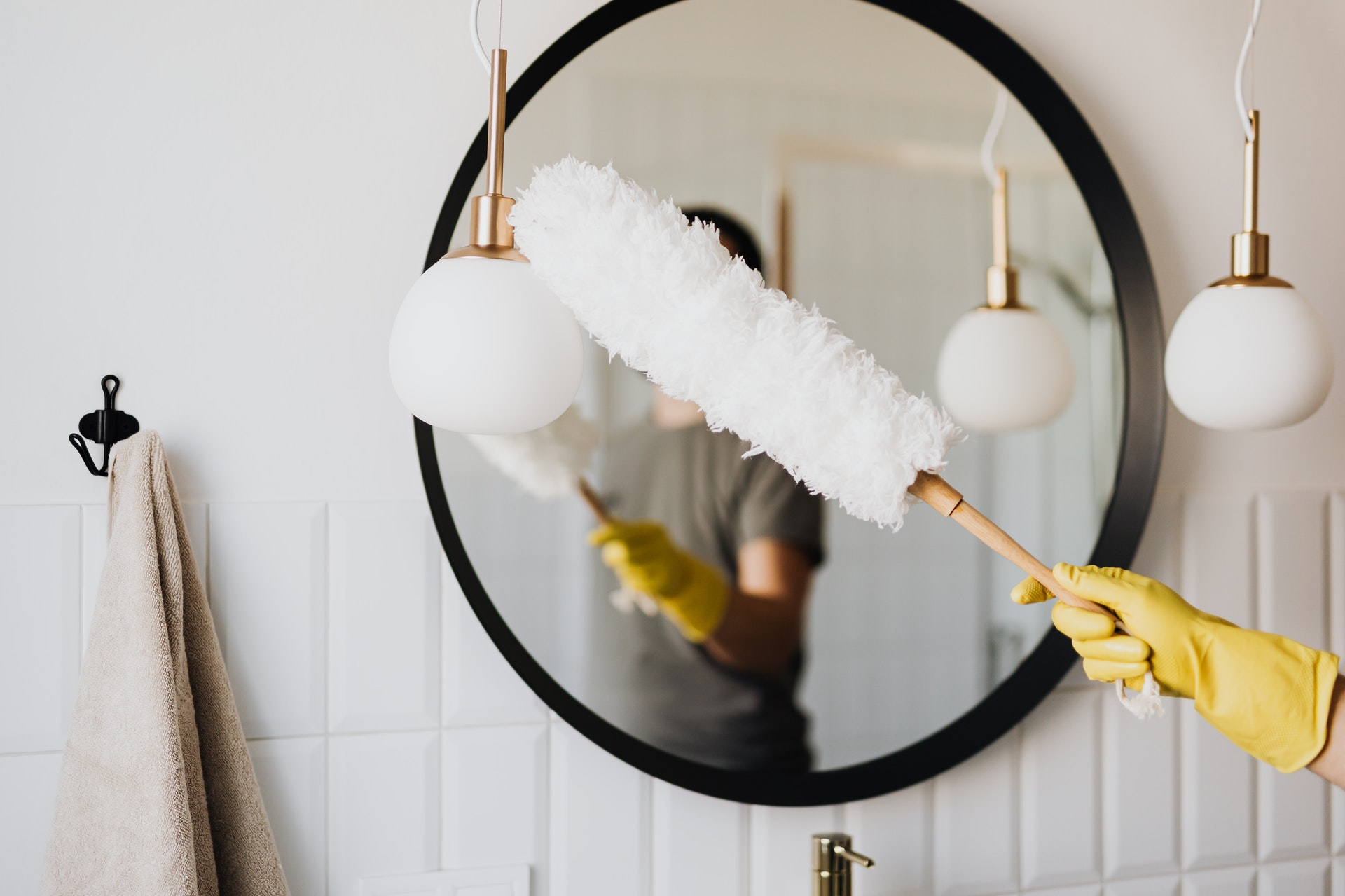
Body + Mind is reader-supported. We may earn an affiliate commission when you buy through some of the links on our site.
You come home from work only to discover that Fido had a field day with the trash can. Even if you couldn’t wait to walk in the door, your enthusiasm fizzles the minute you notice the mess.
Your environment influences your thought patterns. A messy environment — or a tidy one — can change your whole mood. Here’s what you should know about the relationship between cleaning and state of mind.
Have you noticed that you feel restless and unsettled when you are in a messy room? Psychology can now explain why.
One reason clutter stresses you out is that it serves as a visual reminder that you have unfinished work to complete. Even if you try to relax, you see a to-do list everywhere you look. It also induces fear of the unknown. Until you get down to business, you don’t know how long it will take to get to the bottom of the mess, causing you to feel overwhelmed.
Clutter also affects your brain’s biology. It overwhelms your thinking organ with stimuli, giving your visual cortex a constant workout. It causes your senses to work overtime, categorizing items that may not have any real importance. Over time, it can feel like working on a nonstop budget report that never balances — your neurons get exhausted.
Finally, a messy environment can make you feel guilty. You may feel as if your entire life is out of control, and this emotion only gets worse when friends and family pop by to visit unexpectedly. Your embarrassment can lead to depression, sapping your energy and preventing you from taking the action you must to rectify the situation.
While clutter can stress you out, the simple act of cleaning and organizing something serves as an immediate mood booster. It’s a proactive way of saying, “I’m taking back control.”
Organizing your environment can even help you curb reckless behavior. One 2014 study found that people seated in a cluttered room were more likely to impulse-shop online than those in an organized location. If your goal is to slow down and become more mindful, start by cleaning your house.
Cleaning your space also gives you a sense of cozy completion and security. When you look around your sparkling home with satisfaction upon finishing your labor, you can kick back on the couch and take a guilt-free nap. You aren’t left with that nagging feeling that you should run the garbage to the appropriate bins.
Likewise, your judgment will probably improve. Research from 2006 indicates that people in cluttered environments tend to make more errors and feel less confident in their decisions. Scientists hypothesize that the excess stimuli make it harder to concentrate.
What if you’ve let things go so far, you worry that your pad may someday appear on an episode of “Hoarders”? While you might feel overwhelmed, this 5-step approach can help you tackle that mess.
Does reorganizing your entire kitchen seem like one of the seven labors of Hercules? Why not start by tackling one cabinet at a time? When you have a longer timespan, such as on the weekend, take on a more onerous task like cleaning your refrigerator.
Checking things off your to-do list gives you pride in your accomplishment. Go through your house as if you were a neutral inspector and make a list of all the things you want to clean and organize. Hang this master chart somewhere that you see it frequently, such as your fridge door. Mark off each task as you accomplish it, perhaps celebrating each milestone with a small reward, like relaxing with a favorite cup of tea.
House cleaning can be tough physical labor. You don’t want to exhaust yourself or get sloppy, putting things away haphazardly only to have to redo your work later.
Instead, break your chores into meaningful chunks. Try to schedule no more than 30 to 60 minutes each day for cleaning and organizing.
That collection of drink cups didn’t grow legs and walk into your child’s bedroom by itself. Chances are, you didn’t leave the mess there, either. If you share your home with others, encourage them to do their fair share. When you make your to-do list, assign a specific family member to each item.
Once you get your home in ship shape, you want to keep it that way. Clutter can accumulate quickly if you never reuse or recycle old items. Practice one-in, one-out living, where you sell, donate or otherwise discard one thing before purchasing another.
Excess clutter can stress you out and leave you frazzled. Now that you understand the relationship between cleaning and state of mind, make your to-do list and feel better.